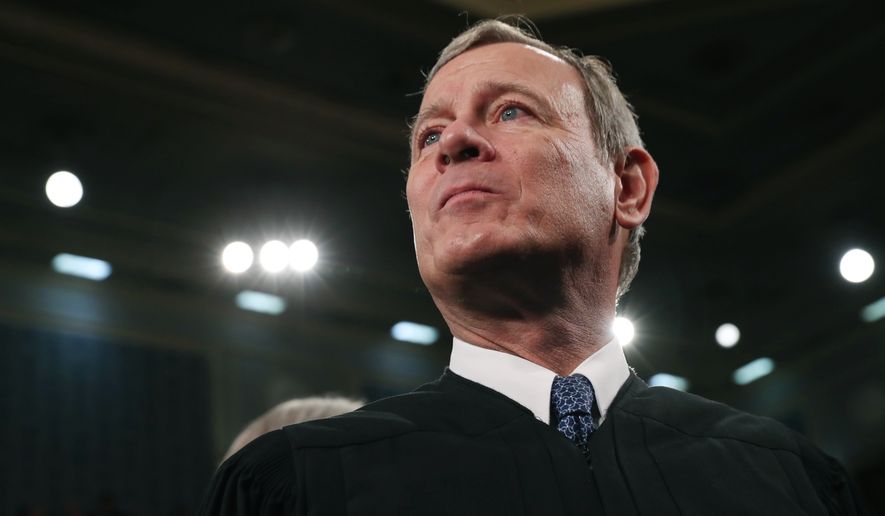OPINION:
In providing the crucial fifth vote to strike down a Louisiana law requiring doctors who perform abortions to have admitting privileges at hospitals, Chief Justice John Roberts has re-enforced a long-standing theme: There is no guarantee a judge nominated by a Republican president will decide cases based on the text of the U.S. Constitution.
From the presidency of Dwight Eisenhower, who called his selections of Earl Warren and William Brennan his biggest mistakes, through George W. Bush, who gave us Chief Justice Roberts, inconsistency has been all too consistent a pattern when it comes to judges nominated by Republicans. Not since Justice Byron White, appointed by John F. Kennedy in 1962, has a nominee selected by a Democratic president gone against the constitutional philosophy of the left. White was one of the two dissenters in the Roe v. Wade case in 1973. William Rehnquist, who would later become chief justice, was the other.
The Louisiana law was not about the “right” of a woman to abort her child, it was argued instead as a way to protect a woman’s health in the face of botched procedures that have sometimes led to severe medical complications and even their deaths. The justices should watch the documentary about Philadelphia physician and abortion provider Kermit Gosnell, who performed abortions on mostly minority women in a filthy environment and who was convicted of murdering three babies, born alive, and convicted of involuntary manslaughter in one woman’s death.
In the Louisiana case, dissenting Justice Samuel Alito, writes NPR, “wrote that the court’s decisions in both the Louisiana and Texas cases are ‘used like a bulldozer to flatten legal rules that stand in the way.’“
Justice Roberts, who had only four years ago dissented in a nearly identical Texas law, justified his current position, citing “precedent.”
Precedent is not always decisive, as in previously overturned cases such as Dred Scott v. Sanford of 1857 and Plessy v. Ferguson of 1896, the former which said African-American slaves could not be U.S. citizens (itself a reversal of precedent) and the latter upholding segregation laws.
Jor-El Godsey, president of Heartbeat International, a Christian association that supports a network of crisis pregnancy centers, reacted to the decision: “This lawsuit was, from the beginning, a demand of Big Abortion to preserve predatory profiteering over any genuine concern for a woman’s health. It is deeply disappointing for a divided Supreme Court to, once again, affirm abortion ideology over what is clearly the common good and rightful care that women should receive.”
According to statistics from the Louisiana Health Department, in 2019, 8,144 abortions were performed in the state, 5,124 African-American women aborted their babies, 2,148 white women aborted theirs. This is similarly true in other parts of the country. Why doesn’t the Black Lives Matter movement protest this racial genocide?
Justice Roberts could be said to be the new Anthony Kennedy, the retired justice, who on especially social issues, sided with his liberal colleagues in creating rights that are nowhere to be found in the Constitution, but which follow opinion polls and often succumb to political pressure and editorials in leftist newspapers.
Abortions have declined somewhat in recent years due to a number of factors, not the least of which is the influence of pregnancy help centers, which unlike most abortion providers, offer their services for free. Sonograms are helping women make life choices. Some states mandate they be used before a woman goes through with an abortion, which has led some women to choose life for their babies. More states should require sonograms to fully inform and empower women.
Those who oppose the Louisiana and similar decisions by the Supreme Court should increase their support of pregnancy help centers. By doing so, they will have a greater effect than waiting for Justice Roberts to again change his mind.
• Cal Thomas, a nationally syndicated columnist, is the author of “America’s Expiration Date: The Fall of Empires, Superpowers and the United States” (HarperCollins/Zondervan, January 2020).




Please read our comment policy before commenting.